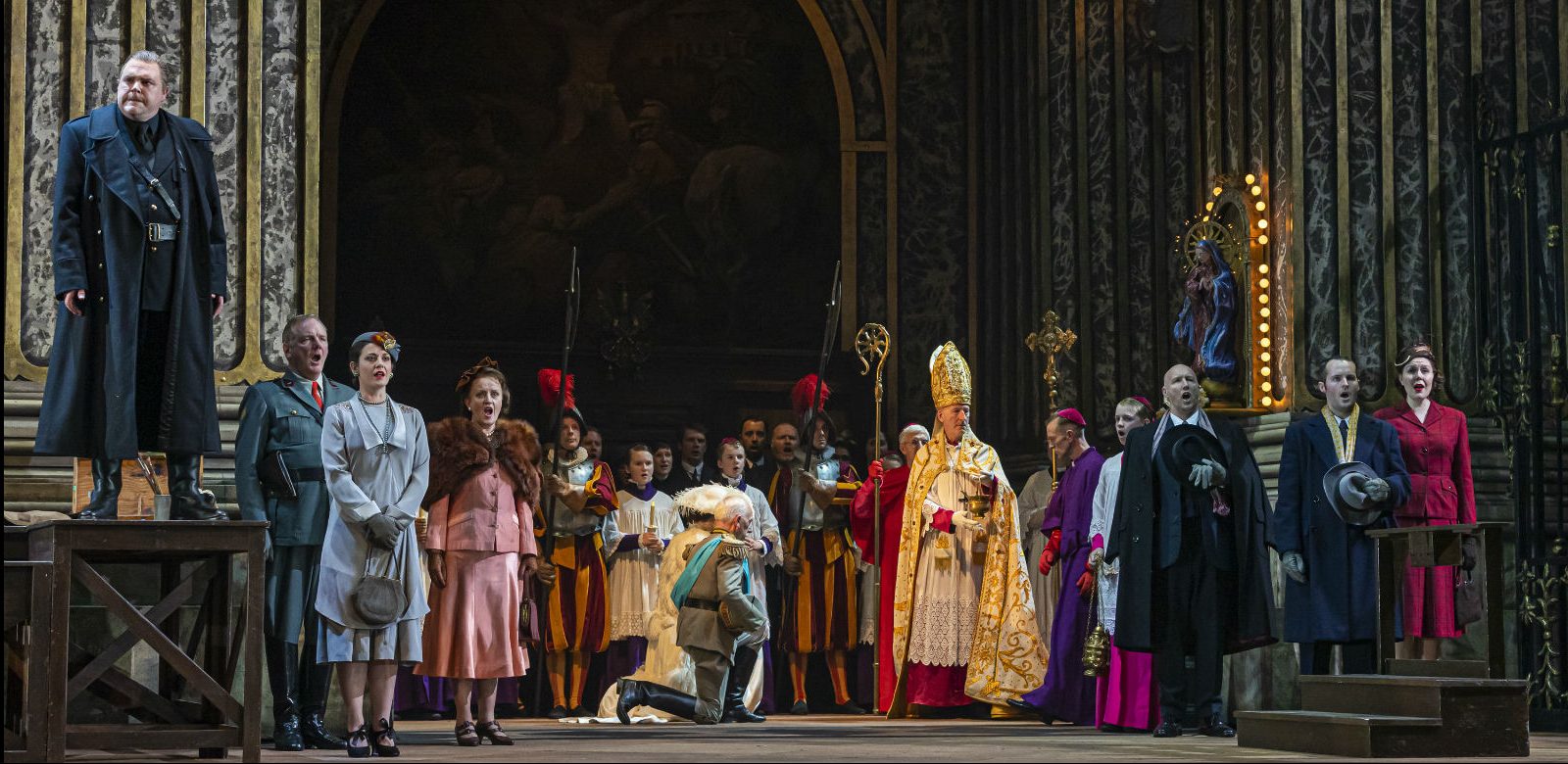Scottish Opera’s timely Brexit-era revival of their celebrated 1980 production of Tosca raises many questions.
On the one hand, this very grandiose production with its sumptuous grand opera sets is a genuine feast to the eye; yet, on the other, it also comes off as over-designed and the austere blank walls of Philip Prowse’s legendary Summit Conference set presented around the same era at the Citizen’s Theatre and then the West End would have complimented Peter Rice’s Mussolini-era costumes far more than the towering rococo edifice we are presented with tonight.
On top of this the composer, likewise, seems to have upstaged himself. The stunning climax to the astounding second act is easily the high point of the whole opera – both musically and dramatically – and the lengthy interval required for the scene change for the rather bland final act unravels the heightened tension of act two’s seat-edge-gripping drama. Although the crescendo of Tosca leaping to her death from the gigantic statue of the Archangel Michael is a riveting piece of theatre, the rest of the act verges on the bucolic. It could easily have risked the wrath of Puccini purists and been edited down to create a more modern conclusion to what remains a very timely story.
Natalya Romaniw is powerful as the eponymous Tosca and brings a solid and emotionally strong persona to the character (rather than sobbing through the role as many Toscas in the past have done) and she is ably partnered by the personable Gwyn Hughes Jones as her painter lover, Cavaradossi. However, the accolades for this performance must surely be laid at the feet of a very deserving Roland Wood who so excels in the role of the evil Baron Scarpia that he is booed at his curtain call.
Coupled with a phenomenal score played with aplomb by Stuart Stratford and the orchestra, this production certainly delivers an exhilarating night at the – albeit grand – opera.
